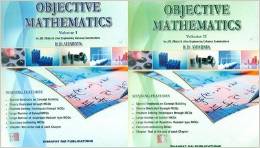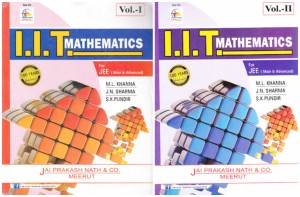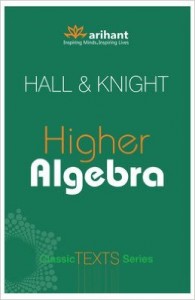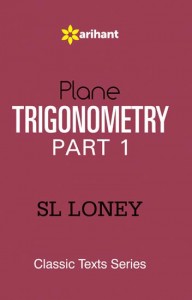IIT JEE Advanced Maths Study Materials All Chapters
- Complex Numbers
- Quadratic Equations
- Sequence & Series
- Logarithms and their properties
- Permutations & Combinations
- Binomial Theorem and Mathematical Induction
- Matrices & Determinants
- Probability
- Trigonometrical functions
- Trigonometrical identities and equations
- Properties Of Triangle
- Inverse trigonometrical functions
- Cartesian system of rectangular co-ordinates in a plane
- Straight Line
- Pair of Straight Line
- Circle
- Parabola
- Ellipse
- Hyperbola
- 3-Dimensional Geometry
- Functions
- Limit, Continuity & Differentiability
- Differentiation
- Application Of Derivatives
- Indefinite Integration
- definite integrals
- Area Under Curve
- Differential Equations
- Vector Algebra
JEE Advanced Maths Syllabus
We have also listed the detailed syllabus below which JEE candidates can refer and learn about the important topics to focus on. Some of the topics covered in JEE Advanced maths syllabus are very important. These include 3D Geometry, Integrals, Conic section, Functions, Vector Algebra, Continuity and Derivability, Limits, Matrices and determinants. Instead of picking random topics, have a thorough analysis of all the concepts mentioned in the syllabus and prepare a suitable preparation strategy.
| Unit 1 Algebra | |
| Complex Numbers |
|
| Quadratic Equations |
|
| Sequence and Series |
|
| Logarithms |
|
| Permutation and Combination |
|
| Binomial Theorem |
|
| Matrices and Determinants |
|
| Probability |
|
| Unit 2 Trigonometry | |
| Trigonometric Functions |
|
| Inverse Trigonometric Functions |
|
| Unit 3 Vectors | |
| Properties of Vectors |
|
| Unit 4 Differential Calculus | |
| Functions |
|
| Limits and Continuity |
|
| Derivatives |
|
| Unit 5 Integral calculus | |
| Integration |
|
| Application of Integration |
|
| Differential Equations |
|
Advanced MATHS reference Books
When it comes to preparing Math for an entrance exam, all you can think of continual practice. Unlike Physics and Chemistry, which have parts of theory and practical questions, Maths is mostly concentrated on practising and attempting questions after learning the concepts. JEE Math too has got a lot to do with knowing the concepts to perfection and being able to apply the same into a varied style of questions.
Here are some important JEE Text Books that have both the explanation of concepts and solved/unsolved questions for practice.
 1. Objective Mathematics (RD Sharma)
1. Objective Mathematics (RD Sharma)
Coming from the most popular and the most widely prescribed author for Math students in school, Objective Mathematics by RD Sharma is ideal for JEE Math preparation too. Those appearing for state level entrance examinations, apart from the JEE, will also find this book helpful. The book will cater to your needs of comprehensive explanation of topics, that too, without tiring you out. To the point and simplistic, the notes will strengthen your foundation too. If there was only one book you wanted to study JEE Math from, RD Sharma’s Objective Mathematics would be the ideal choice. Solved examples and series of practice questions make it ideal for quick revision too.
2. IIT Mathematics (For Algebra) (ML Khanna) 
For Algebra as well as for Vectors, ML Khanna has the right amount of practice questions and explanation of theory. A lot of students also feel that studying from just this one book will also help you prepare effectively for JEE. The book contains varied styles of questions to prepare you in an all-round manner.
 3. Higher Algebras (Hall and Night)
3. Higher Algebras (Hall and Night)
This particular book is the best bet when you want to practise Algebra. For JEE preparation, students can make use of the many tricky and complex questions in the book, and clear their concepts using the best analytical methods. Topics like sequencing, permutations, combinations, etc., can be mastered with the help of Higher Algebra by Hall and Knight. The subjective pattern of the book makes it slightly unsuitable for JEE preparation sometimes, but the book introduces students to new concepts and theorems in a very interesting manner.
4. Plane Trigonometry (SL Loney) 
The book is probably the best bet for practising Trigonometry. Considered one of the easier topics in the subject in general, this book will help you gain additional knowledge in the subject. The questions included are divided into the basic and advanced levels, making it easier for one to get the concepts more thoroughly. The book has not been written with competitive exams in mind, yet there is a lot of scope to learn from the chapter explanations.
CHAPTER WISE DISTRIBUTION OF QUESTION AND MARKS OF JEE Advanced Mathematics PAPER -1 & 2
| Chapter | No. of Question | Marks | % Weightage |
| ALGEBRA | 6 | 19 | 15.32% |
| QUADRATIC EQUATION | 0 | 0 | 0.00% |
| SEQUENCE & SERIES | 2 | 7 | 5.65% |
| PERMUTATION & COMBINATION | 1 | 3 | 2.42% |
| COMPLEX NUMBER | 2 | 6 | 4.84% |
| BINOMIAL THEOREM | 1 | 3 | 2.42% |
| LOGARITHM | 0 | 0 | 0.00% |
| TRIGONOMETRY | 5 | 17 | 13.71% |
| TRIGONOMETRIC RATIO IDENTITIES | 1 | 4 | 3.23% |
| TRIGONOMETRIC EQUATION | 2 | 6 | 4.84% |
| INVERSE TRIGONOMETRIC FUNCTION | 1 | 3 | 2.42% |
| SOLUTION OF TRIANGLES | 1 | 4 | 3.23% |
| CALCULUS | 6 | 21 | 16.94% |
| FUNCTION | 0 | 0 | 0.00% |
| LIMIT, CONTINUITY & DIFFERENTIABILITY | 1 | 4 | 3.23% |
| METHOD OF DIFFERENTIATION | 0 | 0 | 0.00% |
| INDEFINITE INTEGRATION | 0 | 0 | 0.00% |
| DEFINITE INTEGRATION | 3 | 10 | 8.06% |
| DIFFERENTIAL EQUATION | 1 | 4 | 3.23% |
| AREA UNDER CURVE | 1 | 3 | 2.42% |
| APPLICATION OF DERIVATIVES | 3 | 12 | 9.68% |
| TANGENT & NORMAL | 0 | 0 | 0.00% |
| MONOTONICITY | 0 | 0 | 0.00% |
| MAXIMA & MINIMA | 3 | 12 | 9.68% |
| COORDINATE GEOMETRY | 5 | 16 | 12.90% |
| STRAIGHT LINE | 0 | 0 | 0.00% |
| CIRCLE | 4 | 12 | 9.68% |
| PARABOLA | 0 | 0 | 0.00% |
| ELLIPSE | 1 | 4 | 3.23% |
| HYPERBOLA | 0 | 0 | 0.00% |
| VECTOR & 3D | 4 | 14 | 11.29% |
| VECTOR | 2 | 7 | 5.65% |
| 3-D | 2 | 7 | 5.65% |
| DETERMINANT & MATRICES | 4 | 15 | 12.10% |
| PROBABILITY | 3 | 10 | 8.06% |
| TOTAL | 36 | 124 | 100.00% |